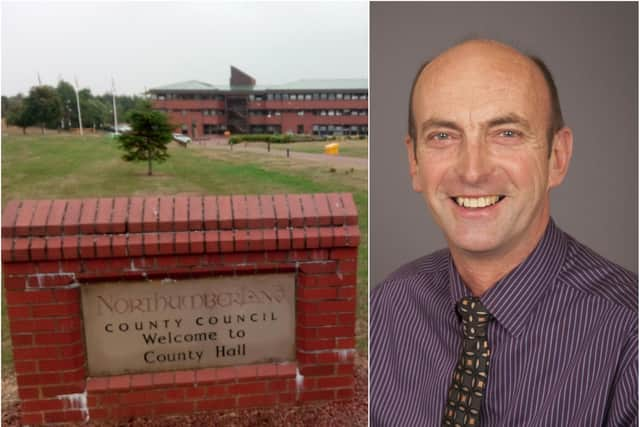Fake holiday refunds, offers to do shopping, and Covid-19 swab kits: The scams you need to watch out for
and live on Freeview channel 276
The warning has been issued by Northumberland County Council’s public protection service.
Trading Standards say unscrupulous criminals are exploiting fears about Covid-19 to prey on members of the public, particularly older and vulnerable people who are isolated from family and friends.
Advertisement
Hide AdAdvertisement
Hide AdThey are receiving an increasing number of calls and complaints as criminals develop more and more new scams to separate residents from their money.


Coun John Riddle, cabinet member for planning, housing and resilience said: “So many neighbourhoods and communities are pulling together to support each other during this crisis so it is very concerning to hear that heartless criminals are exploiting members of the public – including some of our most vulnerable citizens.
“Everyone needs to be vigilant and keep one step ahead of these criminals. Over recent months there has been an increase in frequency and sophistication of the scams which can be very convincing indeed.
“I urge everyone to be on their guard, especially for new COVID-19 scams and to look out for vulnerable family members, friends and neighbours who may become a target for fraudsters.”
Advertisement
Hide AdAdvertisement
Hide AdPhilip Soderquest, Head of Housing and Public Protection, added: “Don’t assume everyone is genuine and don’t be rushed into making any quick decisions. If it sounds too good to be true, it probably is.”


Doorstep scams
Criminals targeting older people on their doorstep and offering to do their shopping. Thieves take the money and do not return.
Doorstep cleansing services that offer to clean drives and doorways to kill bacteria and help prevent the spread of the virus.
Online scams
Email scams that trick people into opening malicious attachments, which put people at risk of identity theft with personal information, passwords, contacts and bank details at risk. Some of these emails have lured people to click on attachments by offering information about people in the local area who are affected by coronavirus. Phishing emails advertising facemasks with malicious links are on the increase.
Advertisement
Hide AdAdvertisement
Hide AdInvestment scams offering high rates of interest exclusively to you. Beware of unexpected telephone calls and always check the company you are dealing with is on the FCA register.
Pet scammers have been advertising puppies or kittens online that don't exist. They persuade the victim to make the payment but use COVID-19 as a reason they can’t visit to view the pet.
Fake online resources – such as false Coronavirus Maps – that deliver malware such as AZORult Trojan, an information stealing program which can infiltrate a variety of sensitive data. A prominent example that has deployed malware is ‘corona-virus-map[dot]com’.
Refund scams
Companies offering fake holiday refunds for individuals who have been forced to cancel their trips. People seeking refunds should also be wary of fake websites set up to claim holiday refunds.
Advertisement
Hide AdAdvertisement
Hide AdAn email offering a tax refund from HMRC. The link takes the recipient to a fake but convincing HMRC website where they are asked to enter their bank details to claim their tax refund.
Counterfeit goods
Fake sanitisers, face masks and Covid19 swabbing kits sold online and door-to-door. These products can often be dangerous and unsafe. There are reports of some potentially harmful hand sanitiser containing glutaral (or glutaraldehyde), which was banned for human use in 2014.
Telephone scams
As more people self-isolate at home there is an increasing risk that telephone scams will also rise, including criminals claiming to be your bank, mortgage lender or utility company.
Donation scams
There have been reports of thieves extorting money from consumers by claiming they are collecting donations for a COVID-19 ‘vaccine’.
Loan sharks
Advertisement
Hide AdAdvertisement
Hide AdIllegal money lenders are expected to prey on people’s financial hardship, lending money before charging extortionate interest rates and fees through threats and violence.
Contact information
If you think you have been scammed
1. Contact your bank first.
2. Report it to Action fraud on 0300 123 2040
3. If you need advice, call the Citizens Advice Consumer Helpline on 0808 223 1133
If you are in immediate danger, contact the police on 999
To learn more about different types of scams and how to protect yourself and others, visit www.FriendsAgainstScams.org.uk and complete the free online training.
For advice about how to stay secure online during Coronavirus, visit the website: https://www.ncsc.gov.uk/cyberaware